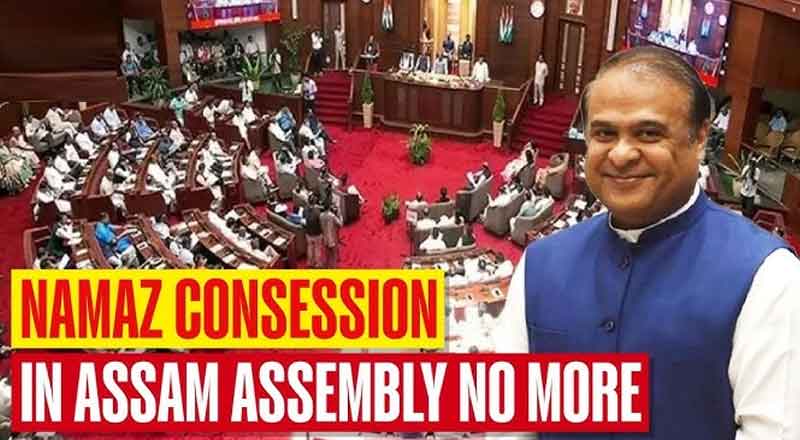The Assam state assembly has ended the long-standing practice of a two-hour adjournment for Jumma prayers every Friday, a tradition introduced by the Muslim League government in colonial Assam in 1937. The decision, which has drawn criticism from some quarters, was defended by Chief Minister Himanta Biswa Sarma, who emphasized that it was a unanimous decision taken by both Hindu and Muslim MLAs in the assembly.
CM Sarma stated, “The Hindus and Muslims of our assembly sat in the Malas Rule Committee and unanimously resolved that the two-hour break is not right. We should work during this period as well.” He clarified that the decision was not made unilaterally but was a collective agreement reached by all assembly members, reflecting a shared commitment to working during this time.
Assam Assembly Speaker Biswajit Daimary explained that the decision was taken because the two-hour adjournment on Fridays was making it difficult to hold discussions due to a lack of time.
However, the move has faced backlash from opposition leaders. Former Bihar Deputy Chief Minister and Rashtriya Janata Dal (RJD) leader Tejashwi Yadav criticized CM Sarma, accusing him of seeking “cheap popularity” and alleging that the BJP aims to “bother Muslims in some way or the other.” Samajwadi Party leader ST Hassan also condemned Sarma, claiming that he “spreads poison in society” and accused his government of being against Muslims.
Previously, the Assam assembly sessions on Fridays were adjourned at 11 am to allow Muslim members to attend namaz. Under the new rule, the assembly will conduct its proceedings without any religious adjournments, with the sessions commencing at 9:30 am every day, including Fridays. The amendment, according to the order, aims to scrap the colonial-era practice, which was seen as divisive along religious lines.





